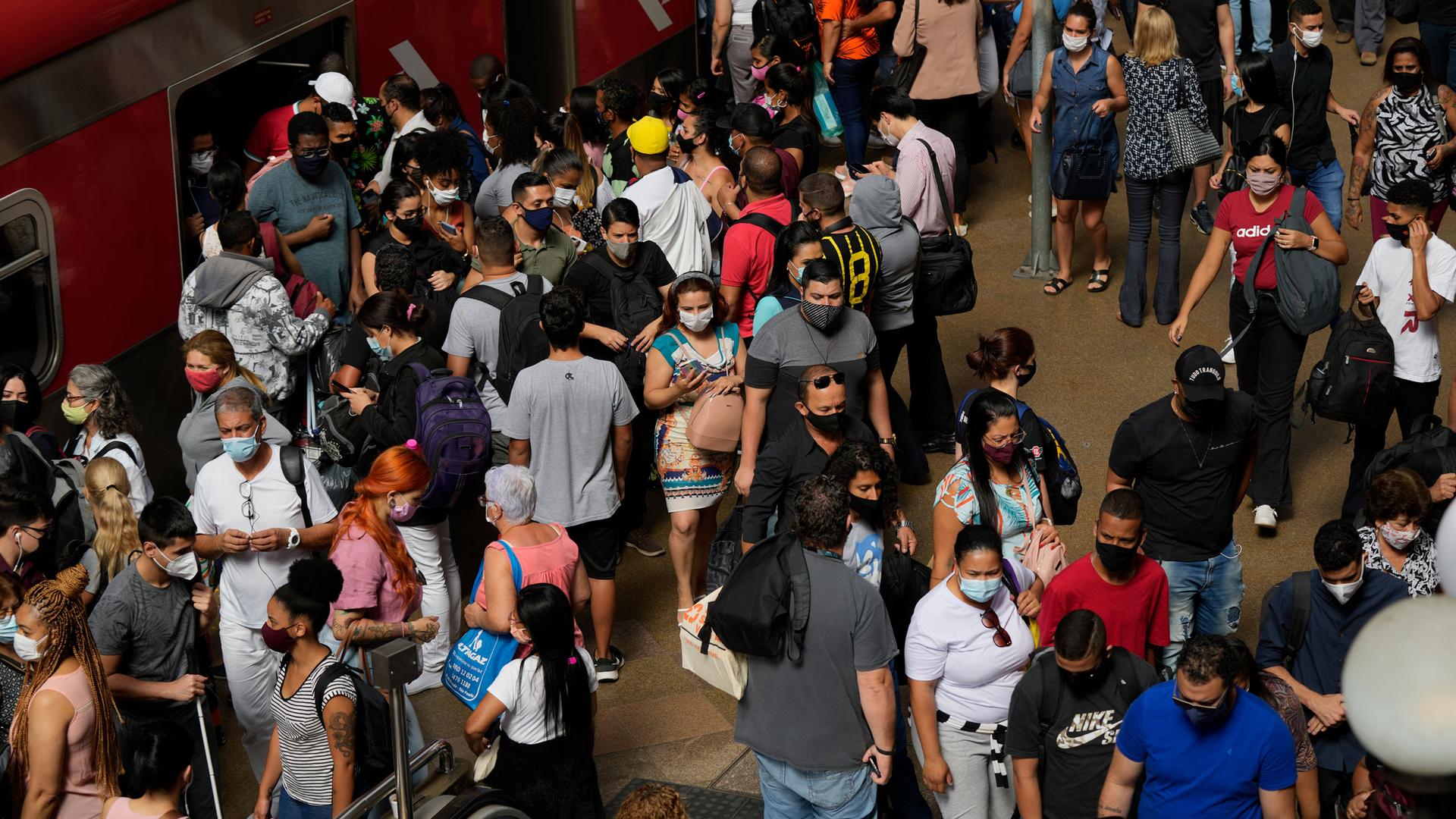Daniela Castelan lives in a 3-bedroom house in Sao Paulo with her husband and two young girls. Just after Christmas, they started feeling sick.
“We had light symptoms,” she said. “One of my daughters had a fever. My 7-year-old had a bad cough. We were all congested and we all had a cough. That’s why I believe it was omicron.”
She said they’ve had a hard time getting tested, because COVID-19 tests are either hard to come by or really expensive. So, they’ve been isolating at home.
This is the story for many in Brazil today. COVID-19 is back with a vengeance, after months of respite, while the flu and other viruses are also hitting communities hard. But a “total blackout” on public health information since December has left health workers feeling blindsided.
Many Brazilians rang in the new year by partying like COVID-19 was a thing of the past. People packed beaches for celebrations in Rio de Janeiro. No one wore a mask.
Related: Bolsonaro accused of crimes against humanity over negligent COVID response
“We are going to have an absurd number of cases. … We are going to pack the emergency rooms. This is a fact. This will happen.”
“We are going to have an absurd number of cases,” infectologist Marcos Caseiro said during an interview shared online last week. “We are going to pack the emergency rooms. This is a fact. This will happen,” he said.
Public hospitals in the state capital of Belo Horizonte are at capacity. Hospitals elsewhere are also filling up.
The omicron variant now accounts for a majority of COVID-19 cases in the country. But Brazil is also battling a flu outbreak. Dozens in São Paulo alone are infected right now with both viruses at the same time.
“We are hearing stories from colleagues that there are patients with COVID, with the flu, with rotavirus and RSV [respiratory syncytial virus]. There are people with four different viruses like this at the same time. … It’s insane. …”
“We are hearing stories from colleagues that there are patients with COVID, with the flu, with rotavirus and RSV [respiratory syncytial virus]. There are people with four different viruses like this at the same time,” said Larissa Brussa, a microbiologist who works with the country’s largest private-sector laboratory. “It’s insane. We weren’t expecting this and it’s very concerning.”
According to the numbers, omicron cases are still relatively low in Brazil. But that’s because there are no official figures. Since a hacker knocked out the country’s COVID-19 reporting system in mid-December, government numbers have been largely offline.
Related: Electricity rates have skyrocketed in Brazil. The govt says the water crisis is to blame.
“I am very concerned about this blackout of information. This leaves us blind for what’s happening around us. And it’s hard for us to develop effective measures to stop cases, hospitalizations and deaths from rising.”
“I am very concerned about this blackout of information. This leaves us blind for what’s happening around us. And it’s hard for us to develop effective measures to stop cases, hospitalizations and deaths from rising,” said Mellanie Fontes-Dutra, a biochemist and a researcher with the COVID-19 Analysis Network.
If there is a silver lining, Brazil’s COVID-19 vaccination program has been a success, after an initially slow start. The government says 80% of the eligible adult population is fully vaccinated.
Related: Brazil’s COVID vaccination campaign picks up thanks to a 1980s public health mascot
Yesterday, Health Minister Marcelo Queiroga announced that vaccines were finally approved for children over the age of 5. He said they would start to be distributed in the coming days.
Cities have reinstated mask mandates. São Paulo is now requiring all state employees to get vaccinated. Many cities, including Rio de Janeiro, have canceled Carnival for the second year in a row.
These measures to stem the spread of the virus are increasing as the country heads into another COVID-19 wave. This time, with more vaccines — but less government data to guide the way forward.
“It’s like we’ve been in a tunnel, we’ve had some glimmers of hope. … but at this moment, with the erasing of information, there is a total blackout. We are in a tunnel. And the light of hope has been blown out.”
“It’s like we’ve been in a tunnel, we’ve had some glimmers of hope,” São Paulo doctor Renata Rivera said. “But at this moment, with the erasing of information, there is a total blackout. We are in a tunnel. And the light of hope has been blown out.”
